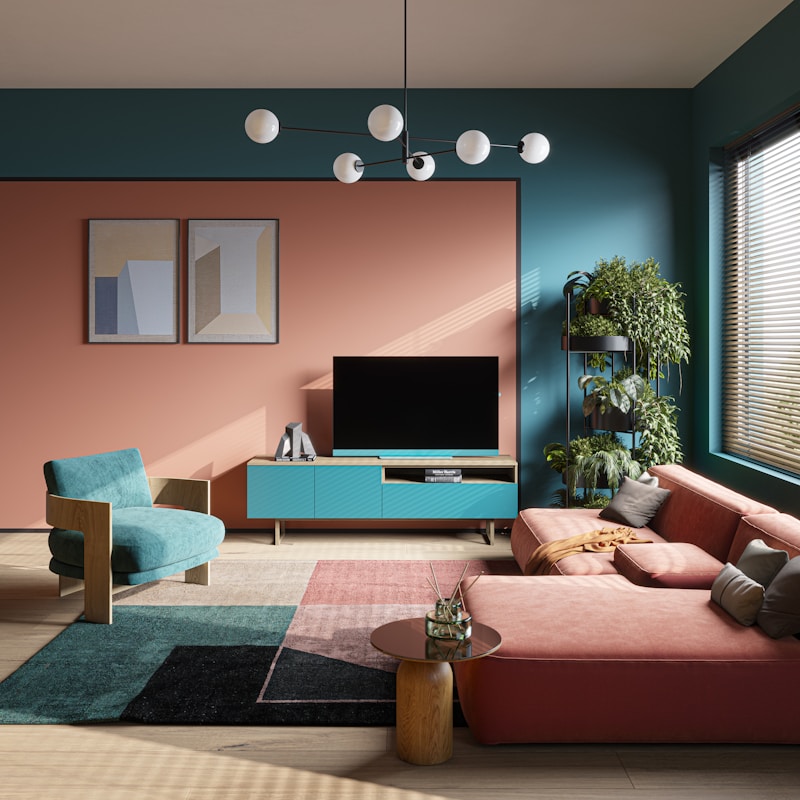A Checklist for Décor and Styling: Transform Your Space with Ease
A Checklist for Décor and Styling: Transform Your Space with Ease
In today’s fast-paced world, creating a harmonious living or working environment has become essential. Whether you’re moving into a new space or simply revitalizing your current one, having a well-thought-out checklist can streamline your décor and styling process. This article presents a comprehensive 'A Checklist for Décor and Styling,' ensuring that you cover all bases from color schemes to furniture arrangement. We will explore essential tips, popular styles, and the importance of personal touches in your interior design journey.
Understanding Your Space
The first step in your décor and styling journey is to understand your space. This encompasses not just the physical dimensions of the area, but also the atmosphere you want to create.
1. Assess Your Space
Begin by measuring the dimensions of your room. Consider the following:
- Height of the ceiling
- Location of windows and doors
- Existing architectural features
2. Determine the Mood
Decide on the mood you’re aiming for, be it cozy, professional, vibrant, or serene. Use color psychology to inform your decisions; for example, blue tends to evoke calmness, while yellow can promote happiness.

Essential Decorating Elements
With a clear understanding of your space and desired mood, it’s time to focus on key decorating elements that will bring your vision to life.
1. Color Palette
Your color palette should reflect the mood you want to create. Typically, a great starting point is to choose a dominant color and two complementary ones. Consider utilizing a color wheel to assist in selecting harmonious colors.
2. Furniture Selection
Choose furniture that fits both the size of the space and the mood you want to achieve. Here are some features to consider:
- Scale and proportion
- Style consistency
- Functionality
| Type of Furniture | Style Example | Functionality |
| Sofa | Modern | Comfortable seating |
| Coffee Table | Rustic | Central gathering point |
| Desk | Minimalist | Work productivity |
3. Textiles and Patterns
Incorporate textiles like rugs, pillows, and curtains to add warmth and texture. Patterns can bring life to your space, but ensure they are balanced and not overwhelming. Strive for a cohesive look by limiting your patterns to a few key areas.
Personal Touches
One of the most significant aspects of décor is adding personal touches that reflect your style and personality. Here are some ideas:
1. Artwork and Decorations
Artworks can transform a space by adding character. Choose pieces that resonate with you and complement your color scheme. Whether it's paintings, sculptures, or photographs, let your art choices tell your story.
2. Accessories
Accessories such as vases, books, and plants can enhance your décor. Incorporate greenery to improve air quality and bring a vibrant feel to your space. According to studies, indoor plants can boost mood and productivity.
Layout Planning
A well-thought-out layout can significantly affect the flow of your space. Consider the following points when arranging your furniture:
1. Create Zones
Designate areas for specific activities, such as a reading nook, work station, or entertainment zone. This will help in maintaining organization and functionality in your space.
2. Traffic Flow
Ensure there are clear paths for movement throughout the area. Avoid obstructing doorways and creating cramped spaces. Each zone should be easily accessible while allowing for comfortable interaction between different areas.
Lighting Considerations
The right lighting can dramatically alter the atmosphere of your space. Layered lighting, which includes ambient, task, and accent lighting, can provide both function and aesthetic appeal.
1. Ambient Lighting
This is the primary source of light in your room, often provided by ceiling fixtures or wall sconces. Choose warm bulbs to create a welcoming environment.
2. Task Lighting
Task lighting focuses on areas where specific activities take place, such as reading or cooking. Desk lamps, bedside lamps, and under-cabinet lighting are great examples.
3. Accent Lighting
Use accent lighting to highlight artwork, architectural features, or decorative items. It can add depth and a touch of drama to a room.
Final Thoughts and Suggestions
Creating an inviting and aesthetically pleasing space doesn’t have to be overwhelming. With a clear checklist covering every aspect of décor and styling, you can transform your environment step by step. Remember to prioritize elements that resonate with you and reflect your lifestyle. Always be open to adjusting your design should your needs or tastes change over time.
In summary, refer to your 'A Checklist for Décor and Styling' regularly to remain focused, keep your space organized, and ensure it continues to serve its purpose effectively. Most importantly, have fun with the process – your space is a reflection of who you are, so let it shine!
